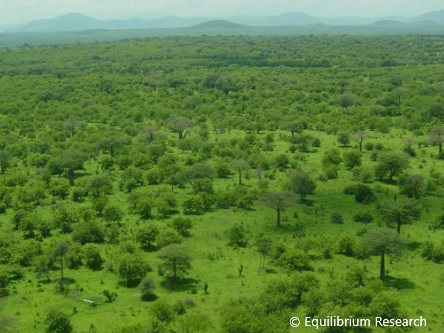
Natural ecosystems slow the rate of climate change by sequestering and storing greenhouse gases. They also help us adapt to changes by providing a variety of ecosystem services, supporting food and water security, disaster risk reduction and human health. Climate change strategies rely on healthy natural ecosystems. But an ecosystems’ ability to supply mitigation and adaptation services
is fragile. When degraded, they can and do flip from being carbon sinks to carbon emitters and ecosystem services can be degraded or lost. Ensuring that ecosystems support climate change control strategies, rather than undermine them, is a critical global priority.
A well-designed and effective network of protected and conserved areas is the most proven way to retain natural ecosystems and their ecosystem services, for both local communities and wider human society. An important area of overlap between the Convention on Biological Diversity and UNFCCC is their dependence on retaining and recovering the ecological integrity of ecosystems. This briefing explains what natural ecosystems provide to climate control strategies, why protected and conserved areas are important and how we can maximise their benefits.







